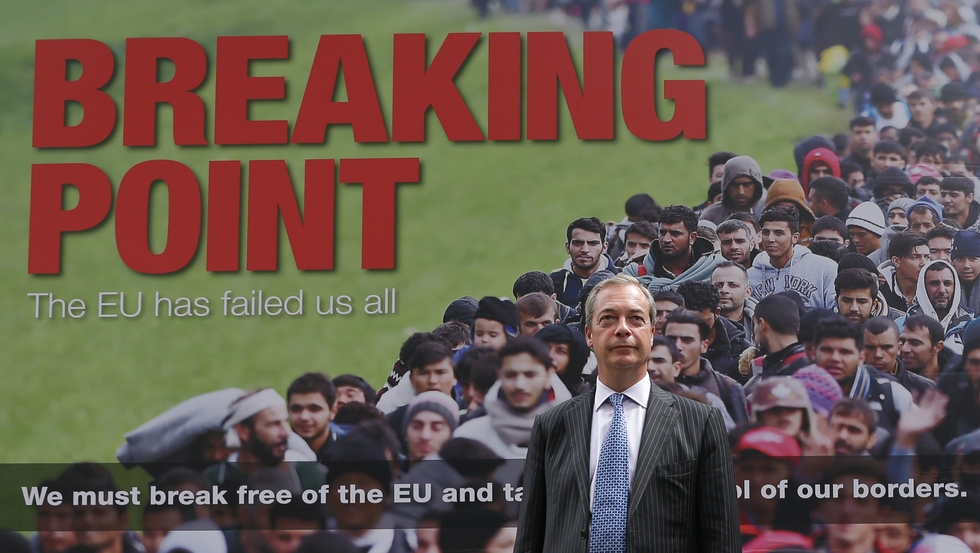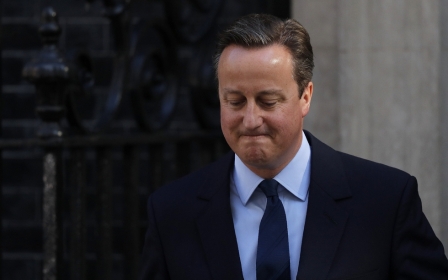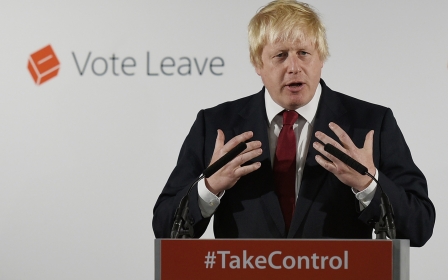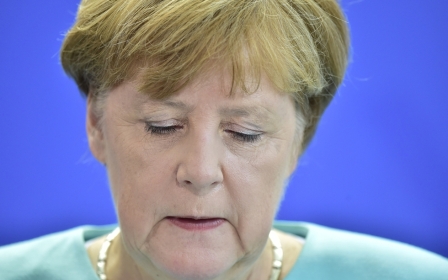'They don’t want others to live with them': Refugees and NGOs react to Brexit

After a bitter referendum campaign that ended with Britain deciding to exit the EU, leading NGOs are sounding the alarm over the futures of migrants and refugees in the UK.
Britain voted to leave the EU on Thursday, after a toxic campaign dominated by a debate over immigration, during which a member of parliament was shot and stabbed to death by a man with far-right views.
“For far too long we have been spun a line on immigration that blames migrants for all of our ills,” the Joint Council for the Welfare of Immigrants (JCWI) said in a statement on Friday. “We are now in a position where migrants in the UK, particularly those from the EU, are scared for their future in the country they have made their home.”
These worries were echoed by campaigning organisations across the country.
Chris Doyle, director of the Council for Arab-British Understanding (Caabu), told Middle East Eye: “I think that those who are here from ethnic minority groups, including refugees and asylum seekers, will almost certainly have been very concerned at the climate of debate throughout the entirety of this campaign.”
He described the “highly divisive” campaign as one in which “immigrants and refugees were somehow seen as the great evil that was coming in to swamp the country”.
Little wonder, then, that the JCWI emphasised migrants in its statement: “All sides of this referendum debate must act quickly to reassure those migrants who are already living in the UK that they are welcome and valued.”
One such refugee is Hassan Ayo, a Syrian who arrived in the UK last year with his wife and two sons from Turkey.
He told Middle East Eye that he expected the UK government to honour its commitment to resettle 20,000 Syrians, but that afterwards, “there will be harsher views and opinions regarding welcoming refugees to Britain”.
“Britain likes to live alone,” he replied, when asked what the outcome of the referendum meant to him as a refugee. “They don’t want others to live with them.”
Statement by another NGO, Refugee Action, on Brexit
Human cost
Amid the politics, Ayo said, there is a risk that refugees will become abstract entities, and that members of the host society will forget that the concerns of refugees largely mirror their own.
“For 30 years, the pound has not dropped like it has now,” Ayo said, talking about the economic implications of Brexit. “The banks inside Britain could leave, leading to an economic crisis.
“In the day-to-day economic situation, prices will go up,” he said. “The lives of refugees will be pressured from an additional side. I am scared of the future regarding refugees from Syria in Britain.”
Hassan and his family were forced from their middle-class lives in northeastern Syria in 2012, after President Bashar al-Assad’s forces pulverised their home city of al-Hasakah with a campaign of air strikes.
They moved from one refugee camp to another before arriving in Britain in February last year under the Home Office Vulnerable Persons Resettlement scheme - but not before losing their 14-year-old daughter to a heart complication and lack of medical care.
“I do not support the exit of Britain from the European Union,” Hassan said. “It was surprising news to me.”
Haunted by conflict back home, he was worried by the prospect of more turmoil in the UK.
“There could be conflict, because there are areas in Britain that were 62 percent for remain. So this could create another problem inside Britain, a local conflict,” he said, referring primarily to Scotland.
Coventry, his new home city, voted to leave the EU by a 12-point margin.
Describing it as a “peaceful city,” he found cause for optimism in the fact that people had not treated him differently during or after the campaign: “[Coventry] has different people and citizens all living in the same city.
“If it was 20 percent versus 80, it would have been scary,” he said. “But if it's 48 to 52 percent, the difference is 4 percent and this is not that big, so there is balance.”
Period of uncertainty
The tone of the debate disappointed many in the UK, not least organisations trying to promote understanding between Britain and the outside world.
“All the positives about immigration were completely drowned out in this historic debate, so I think there’s a great deal of nervousness,” Doyle of Caabu said. “Because the vote was won on the issue of immigration, won on the issue of saying essentially that Britain was full up and we shouldn’t have any more, it will lead to an ever further tightening of Britain’s policies towards migrants and refugees.”
Looking to the future, he told MEE: “It’s certainly not going to encourage the government, and whoever is the next prime minister, to have a more flexible approach to all of this.”
The combined political and economic fallout of Brexit also led Doyle to speculate on one of the most contentious issues to plague British politics in recent years - the level of Britain’s foreign aid contributions.
“If indeed we see that the economy is hit by this period of uncertainty, there might not be the resources that there once were,” he said, adding that Britain’s status as the single largest donor in the Syria crisis may be at risk.
“Above all, this whole period of uncertainty will feed into all areas of policy-making,” he said. “It will see Britain as a very inward-looking country for some time as we struggle to determine how we go forward.”
New MEE newsletter: Jerusalem Dispatch
Sign up to get the latest insights and analysis on Israel-Palestine, alongside Turkey Unpacked and other MEE newsletters
Middle East Eye delivers independent and unrivalled coverage and analysis of the Middle East, North Africa and beyond. To learn more about republishing this content and the associated fees, please fill out this form. More about MEE can be found here.




